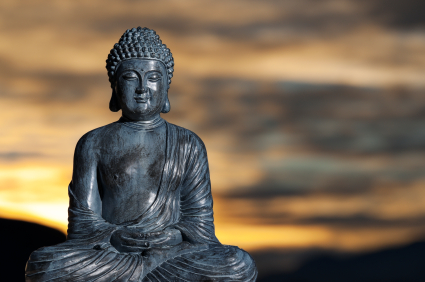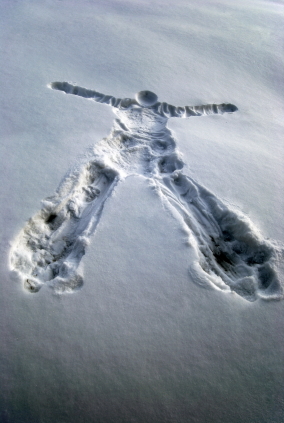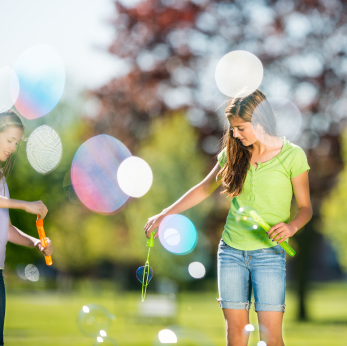Feeling lonely? Meditate!
I spent this past weekend in NYC, the place that I once called home and in my heart of hearts, still do. But as I sat at lunch yesterday and watched people stroll by, I realized that many of them were alone. And I remembered that despite the millions of people in NY, I often felt very much alone there. I don’t feel that way very often any longer and yet, I imagine that it’s not simply a geographically-driven emotion but rather, life changes have a lot to do with loneliness. Indeed, by the time that midlife hits full on, many adults find themselves going through a divorce, losing loved ones to illness and watching their children leave the house for college or to start their lives and careers. Sound familiar? Well, then you might also find the link of these events to loneliness and in turn, to an increased risk of heart disease, depression and even premature death, important.
While the underlying reasons for these associations are complicated, suffice it to say, research suggests that stress can trigger inflammation that has been shown to increase the risk for chronic illness and death. Fortunately, for the first time, there may be a solution: meditation.
Researchers from UCLA say that study findings show that incorporating 30 minutes of daily meditation practice may help to alter the way our genes bolster inflammatory processes in the body by altering feelings of loneliness. Indeed, when people between the ages of 55 and 85 were trained in mindfulness meditation practice, they did more than find inner peace. Here’s the skinny:
Half of the participants participated in a trainer-led, two-hour mindfulness sessions in which they were guided through mindfulness meditation exercises, mindful yoga and stretching, and group discussions that were intended to help promote mindful awareness of the present moment, and moment to moment experience; these sessions were held weekly for eight weeks. They also participated in a day-long retreat towards the end of the study where their practice were more closely integrated and discussed. Additionally, these men and women practiced at least 30 minutes of mindfulness sessions for six days a week during the program.
Mind you, the study was very small and included only 40 participants. However, learning how to live in the present appeared significantly reduce feelings of loneliness and alter both genes and protein markers of inflammatory by as much as 25%, including the signal that activates the inflammatory processes in the body. The researchers say that also observed a decline in C-reactive protein, which has been linked to heart disease.
Loneliness..scientifically, it’s been described as “a state of social distress that arises when there is a discrepancy between one’s desired and actual social relationships.”
I like this description better, from the great Buddhist nun and teacher, Pema Chodron:
Loneliness is “restless and pregnant and hot with the desire to escape and find something or someone to keep us company. When we can rest in the middle [through meditation practice], we begin to have a nonthreatening relationship with loneliness, a relaxing and cooling loneliness that completely turns our fearful patterns upside down.”
Mindfulness meditation. It may alleviate more than heartache and benefit in ways that we have yet to imagine.
Read More
Wednesday Bubble: Newsflash – sleep and skin aging
Whoa! I have some news to share this week and it’s not good for those of us who struggle nightly with their sleep. Poor sleep has been linked to premature skin aging and an overall reduced skin health.
In what is being billed as a ‘first of its kind,’ University Hospitals Case Medical Center (Cleveland, OH), explain that their study (which was presented this past April at the International Dermatology Meeting in Edinburgh) evaluated 60 women between the ages of 30 and 49 (who, by the way, were premenopausal) who had been surveyed about their sleep quality using a scientific index. About half of the women reported having poor sleep quality and sleeping five hours or less a night.
Additionally, the researchers evaluated participants’ skin aging in terms of physiological factors (e.g. diminished collagen) and external factors (e.g. UV rays, smoking) that might contribute to skin aging, as well as assessing how well the skin was functioning to keep out damaging substances and maintain moisture.
Finally, the women were asked to maintain a sleep log for a week.
The findings are quite startling. Women who were classified as poor sleepers showed significant signs of aging that are associated with intrinsic (physiological) factors, including fine lines, uneven pigmentation, slackening and reduced elasticity. On the other hand, good sleepers appeared to have half of the signs of aging as their colleagues, and they also recovered more efficiently from factors that stress the skin, such as recovery from sunburn and inflammation. And, skin function was about 30% more efficient in good quality sleepers compared to poor sleepers; for example, they had better recovery from moisture loss tests.
The primary take away from these data, which appears in abstract form in the Journal of Investigative Dermatology, is that poor sleep may accelerate skin aging and hinder or weaken the ability of the skin to repair itself. The key to better skin aging? Get more zzzs!
Read More
Wednesday Bubble: It’s Amazing!
Snake Oil. It’s pervasive in health and it’s important to maintain your vigilance and common sense. So, if someone promises you a product that is NON-TOXIC with NO DRUG INTERACTIONS, a technology that touches just about every aspect of health imaginable, directs you to a website entitled yesitsamazing, you have to step back and wonder what the heck.
What’s so amazing you ask?!
Redox signaling molecules — the very same molecules that exist within cells — that scientists have now suspended in a saline solution so that they work OUTSIDE THE BODY to heal just about everything from asthma and bladder leakage, to restless leg syndrome, cardiovascular disease and Alzheimer’s. My goodness, it’s a miracle, truly amazing!!!!! Or as the folks over at Science Based Medicine describe it, “water and salt.”
The folks pitching this miracle supplement, better known as ASAE, claim that they have data supporting the efficacy of chemically recombined molecules. In fact, ASAE theoretically replenishes signaling molecules that are lost during the aging process.
- Promotes enhanced immune function
- Boosts efficiency of the body’s own antioxidant by 500%
- Offers proven superior support to athletes (in a study of 17 people, by the way, with no control group for comparison)
Honestly, you probably need ASAE as much as you need a glass of salt water. Amazing? Hardly.
Falling into the traps of masculine invulnerability – Guest post by Bob LeDrew
I’ve been trying to recruit the guys to guest post on Flashfree ever since I started this blog. And my pleas have fallen on deaf ears, save for one or two brave souls. Speaking of brave souls, I am truly blessed to call fellow writer Bob Le Drew a friend. Not only is he extremely talented, but, his self awareness and ability to overcome the trappings of masculinity appear to have paid off. He has a few insights for the men in your lives that you might wish to share and, you may learn a thing or two as well. I did!
Show some love…
I don’t like restaurant bathrooms with red walls. Once you’ve had bladder cancer, you tend to look closely at your urine stream, and those red walls give it a rosy hue that normally signifies nothing good.
I discovered something about myself seven years ago, when I first saw blood in my urine. I went to my clinic immediately, where my nurse practitioner saw me and recommended urinalysis. The first round didn’t find anything. But when it recurred a few weeks later, we found findings concerning enough to go further, and I was a new citizen of Cancerland.
But I’m not, apparently, your typical male.There’s a significant body of research that shows men are less likely to seek out help for physical and psychological problems than are women. That can lead to serious consequences — as serious as death, when heart attack symptoms are ignored until the infarction is catastrophic.
So what’s WRONG with us, guys? I’ve got a couple of theories.
#1: When men are young, we’re invulnerable. I was somewhat immunized by that by losing a brother when I was 13 and he was 19. But in general, our attitude as teenagers and in our twenties is “What could happen to us?” unless we or someone we love are diagnosed with something serious. In my case, my dad had been diagnosed with bladder cancer a number of years before mine showed up (he went on to have five primary cancers and live with them for 20 years before dying just short of his 87th birthday). His experience, and his sharing of information with me, made me realize that I couldn’t just pass off the bloody pee as “nothing.”
#2: We cling to our youth and our invulnerability. When I ride my bike, I still want to push my body as hard as I can, and even though I don’t train as hard as I used to, my decreased ability to climb steep hills with speed and grace is an ongoing frustration. Same thing with staying up late and eating poorly. The lessons we teach ourselves in youth are hard to unlearn.
#3: Part of our self-esteem and self-worth is tied to not seeking help. In Stephen King’s novel Bag of Bones, hero Mike Noonan says he’s the kind of guy who’d drown silently rather than call out for help. Isn’t that true of so many of us as men?
Several years after my cancer experience, I found myself facing a serious depression. I denied that things were not going well for me psychologically. I didn’t seek help. Why would I, when “everything was fine.” And I continued to deny the reality of my depression until I hit a painful, damaging, and nasty wall. Our love for physical invulnerability is only matched by our firm belief that admitting we’re not coping well is the LAST thing a man should do.
The temptation to ignore or deny symptoms of depression or stress is one I continue to struggle with.
And of course, none of this addresses the issue of access to services. I live in Canada, and have ready access to free medical care, as well as group insurance that subsidizes the cost of dental, psychological, and other types of medical services. I can only guess that having to pay for medical services in tough economic times would make men even more likely to “tough it out” and save scarce resources for “more important” things.
I was lucky. Twice. My bladder cancer was “superficial” — a good thing. With some minor surgical fixes, I have been physically healthy for the last several years. And thanks to talk therapy, a supportive partner, treatment, and medication, I am able to manage my mental health pretty well.
So if you, like me, are closer to retirement age than high-school graduation, don’t fall victim to the traps of masculine invulnerability. Your body, your mind — and your loved ones — will thank you for it.
About Bob LeDrew
Bob LeDrew is principal consultant at Translucid Communications in Ottawa (Ontario, not Kansas). He’s been doing communications in one form or another since 1987, and in addition to his consulting work, teaches regularly at Algonquin College and Eliquo Training and Development. He’s also the creator of The Kingcast, a podcast dedicated to his favorite writer, Stephen King. He enjoys cycling, animation, whisky, and playing guitar. He usually only does a maximum of two of those at one time.
Read More
Wednesday Bubble: Sunscreen and Skin Aging
I am bursting a big bubble today. The topic? Aging skin. Lord knows it’s a common theme among the women I know. And many women spend thousands (if not tens of thousands) of dollars on creams, lotions, botox, fillers, face lifts and the like to prevent wrinkles, make them disappear or preserve what they have.
Among the many culprits linked to aging skin, cumulative sun exposure is the worse. Ultraviolet (UV) light wreaks havoc directly on proteins and acids in the skin cells, impairs collagen and elasticity, and at its worse, promotes the development of skin cancer.
So short of spending thousands on the above, what can you do?
WEAR SUNSCREEN!
I can’t emphasize it enough.
Experts have been telling us for years that sunscreen can protect against the development of skin cancer. Guess what?! For the first time, researchers have shown the wearing sunscreen can also protect against skin aging. Moreover, a good sunscreen costs a heck of a lot less than costly cosmetic procedures that requires regular maintenance or endless surgeries to remove skin cancer patches.
In a newly published study appearing in the Annals of Internal Medicine, researchers assigned 903 adults under the age of 55 — most of whom were fair skinned and burned when exposed to acute sun — to two groups:
- Roughly half applied sunscreen, SPF 15, to their head, neck, arms and hands every morning and were asked to reapply it after spending several hours outdoors or after heavy sweating or bathing.
- Half were asked to apply sunscreen, SPF-15, at their discretion
- The study participants also received a daily beta-carotene capsule or a placebo
At both the study’s start and after about four and half years, the researchers took impressions of the back of every hand. To insure that the groups were ‘sticking with the program,’ so to speak, they were also asked to turn in suncreen and return the pill bottles for capsule counts every three months.
The findings? Well, at the start of the study, a little over half of the participants showed moderate photoaging; four years later, 49% had skin showing aging to the same degree. And, only the people who used daily sunscreen did not have a detectable increase in the severity of their photoaging. In fact, daily sunscreen users were 24% less likely than discretionary users to have experienced increased skin aging! The same findings were not seen among people with higher grade photoaging at the study’s start. And no differences were seen between beta-carotene and placebo tablet users. Importantly, the results did not appear to be linked to any change in time spent outdoors or in other sun protection methods.
The reason that the ‘under 55 set’ were chosen for the study is that the majority of their photoaging at this stage in their lives is due to sun exposures. So, the findings might not apply to adults older than age 55 whose aging skin is also due to other factors in addition to sun exposure. Still, the researchers say that a unit increase in photoaging grade is related to a visible deterioration in skin texture and an increase in visible small blood vessels and pores on the face. It also correlates significantly with a risk for keratoses and skin cancer.
Still unknown is whether or not a sunscreen with a higher SPF would achieve even greater results. And there are a few scientific limitations to the study; for example, a third of participants did not have skin impressions taken at the study’s start (although the researchers argue that this did not appear to affect the results), and the study numbers were too small to conclude a true lack of benefit with beta-carotene. Yet, what is clear is pretty simple:
Wear sunscreen. Not only will it help to protect against skin cancer but, it also appears to yield a cosmetic benefit, preventing visible aging. That’s a win-win in my estimation!
Read More
Wednesday Bubble: Music as medicine
I don’t know a single person who doesn’t like music. Not. A. Single. Person. Do you?
Researchers say that not only is music “one of the small set of human cultural universals” but, that the concept of music as medicine has roots that extend deep into human history. Today? Music is used to soothe babies, enhance concentration in surgical arenas, improve attention among workers, promote stamina in athletes (and exercisers), and may be the ultimate drug of choice to regulate mood and arousal.
There is also a growing body of scientific evidence that suggests that musics that music can actually promote health. In fact, some studies show that pleasurable music, when self-selected, was able to induce ‘chills down the spine’ as well as actually alter the parts of the brain that are connected to reward and reinforcement. Listening to music has also been shown to activate parts of the brain that regulate emotional and cognitive functioning and even the part of the nervous system that affects heart rate, breathing, digestion and sexual arousal. It may also positively affect the hippocampus, which plays a role in facilitating and inhibiting defensive behaviour when we become stressed. Better yet, music may actually deactivate the mama of stress hormones – cortisol.
However, not only does choice influence the body’s response to music but it appears that personality may also play a role in its effects. Outgoing in nature? Background music may distract you less than your introverted peers when focusing on a particular task.
Still, experts haven’t quite teased out the ‘how,’ other than to show through imaging studies that the notes in our ears appear to initiate brain responses that are reflexive, such as heart rate, pulse, blood pressure, body temperature and muscle tension. Pay attention the next time you put on that track: dance music will quicken heart rate and breathing while a slow groove will likely produce decreases in the same — even among infants. And in fact, the brainstem may actually fire synchronously with tempo.
And what about immunity? Can music help or hinder that as well, particularly as people age? Researchers point out that “given that music enhances mood and reduces stress,” it may also improve immune function and mitigate the negative effects of age and stress. This appears to work whether it’s a group driven activity (like drumming or group singing) or passive listening (e.g. during surgery).
Researchers still claim that the proof is in the pudding and scientifically rigorous studies are needed to determine once and for all if music is indeed, medicine. To met, evidence or not, I know when it makes me feel good and when it does the opposite. I know what I like to listen to when I want to relax. And I know what I want to put on rotation when I exercise or wish to dance around the house.
“Music gives soul to the universe, wings to the mind, flight to the imagination and life to everything.” – Plato
My medicine? Music. What about you?
Read More












